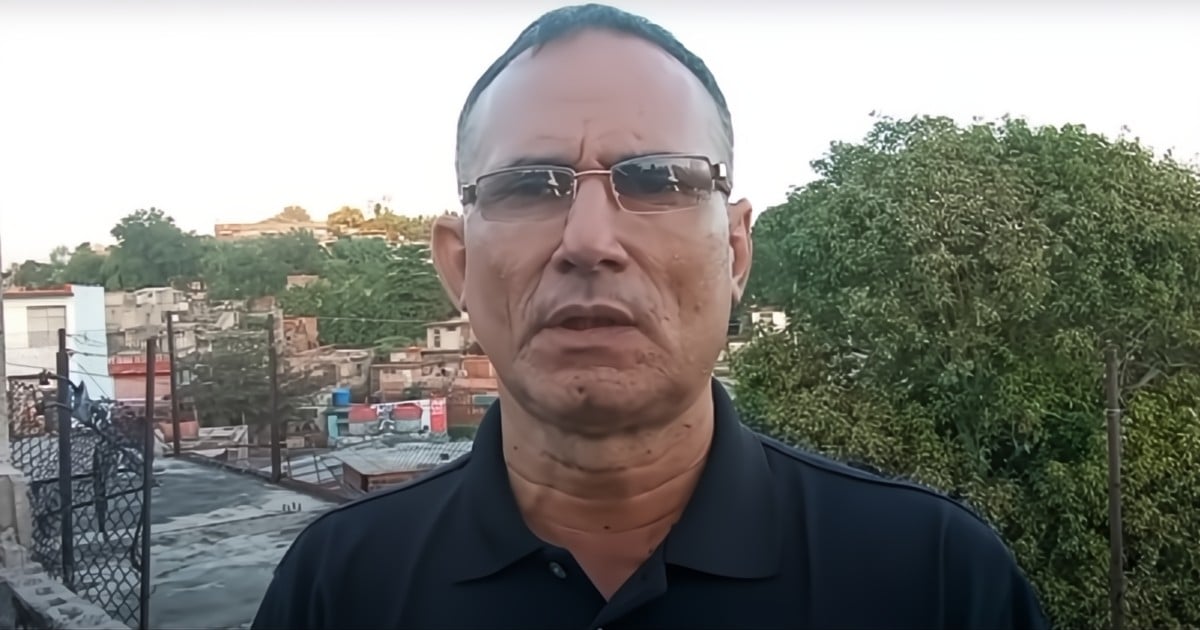The recent release of José Daniel Ferrer has sparked a heated discussion following his suggestion for "reconciliation" with the Cuban regime if it chooses to initiate a transition process. In an interview with the independent outlet El Toque, Ferrer declared, "If they decide, even if belatedly, to start a swift transition process here in Cuba, I would agree that this process should begin, and we reconcile and move Cuba forward."
This stance has drawn mixed reactions. While some praise his courage and clarity, others have branded him a "traitor." Ferrer, leader of the Patriotic Union of Cuba (UNPACU), aware of the criticisms, stressed that his record in the fight for democracy and human rights in Cuba is evidence enough of his dedication, stating that "actions speak louder than words."
"Valesa, Gandhi, Luther King, and others who did much for their people and for freedom were also called traitors... So it's not surprising that they attack this humble farmer without hate in his heart but also without fear. Actions speak louder than words. Nothing new under the sun, says a biblical text. Those who slander, defame, and distort reality, those who hate, history gives them the place they deserve...," he recently wrote on social media.
Comparing Historical Transitions
In the controversial interview, the opposition leader compared his proposal to similar processes in other countries, mentioning Poland and Chile, where negotiations took place with dictatorial hierarchies to achieve peaceful transitions. "Didn't Lech Walesa negotiate with Jaruzelski...? Didn't they end up agreeing on an entire process? Didn't Solidarity come to power with popular support? Why shouldn't we choose that path in Cuba?" he questioned.
Ferrer, who has faced multiple arrests for his activism, emphasized that his struggle has been grounded in principles of freedom and justice, refuting any accusations of disloyalty. "There is no greater betrayal than remaining silent in the face of our people's oppression and misery," he expressed.
Divisive Reactions
Ferrer’s statements have elicited both support and opposition within and outside of Cuba. Notably, fellow dissident Manuel Milanés disagreed with his remarks. On social media, Milanés stated, “Unlike José Daniel Ferrer, I will not insult him by calling him a drunkard or a coward, as he does with me in his verses, but I give my word as a man that if he makes a pact with the tyranny of the Communist Party, without punishment for the criminals, he will be treated as a vile traitor.”
A Legacy of Activism and Imprisonment
Throughout his activism, Ferrer has faced numerous arrests and imprisonments. In 2003, during the infamous "Black Spring," he was detained and sentenced to 25 years in prison for his involvement in the Project Varela, an initiative seeking democratic reforms in Cuba. He was released in 2011 following mediation between the Cuban government, the Catholic Church, and the Spanish government.
In October 2019, Ferrer was arrested again on charges of "assault" and "unlawful detention." After six months in prison, he was sentenced to four and a half years of house arrest. However, in July 2021, during the 11J anti-government protests, he was detained once more for attempting to join demonstrations in Santiago de Cuba. Since then, he was held in Mar Verde prison under conditions reported as inhumane, including extreme isolation and lack of medical care.
On January 16, 2025, after nearly three and a half years in prison, José Daniel Ferrer was released as part of an agreement between the Cuban government, the United States, and the Vatican, which provided for the gradual release of 553 political prisoners. Upon his release, Ferrer urged Cubans not to fear fighting for a free and prosperous Cuba, emphasizing that "the oppressor is increasingly frightened."
Despite his release, Ferrer has criticized the administration of former President Joe Biden and the Vatican for the way the agreement was handled, stating that he feels no gratitude towards negotiations he deems unworthy and potentially beneficial to the Cuban regime. He has reaffirmed his commitment to continue the peaceful struggle for freedom and democracy in Cuba, despite adversities and potential reprisals.
Frequently Asked Questions about José Daniel Ferrer's Stance
Why is José Daniel Ferrer considered controversial after his release?
Ferrer sparked controversy by suggesting reconciliation with the Cuban regime if it initiates a transition process, drawing mixed reactions from both supporters and critics.
What historical examples does Ferrer reference to support his proposal?
Ferrer cites Poland and Chile as examples where negotiations with dictatorial regimes led to peaceful transitions, suggesting a similar approach for Cuba.
How has Ferrer's activism impacted his life?
Ferrer has faced multiple arrests and imprisonments due to his activism, including a significant sentence during the "Black Spring" and recent detentions related to anti-government protests.
